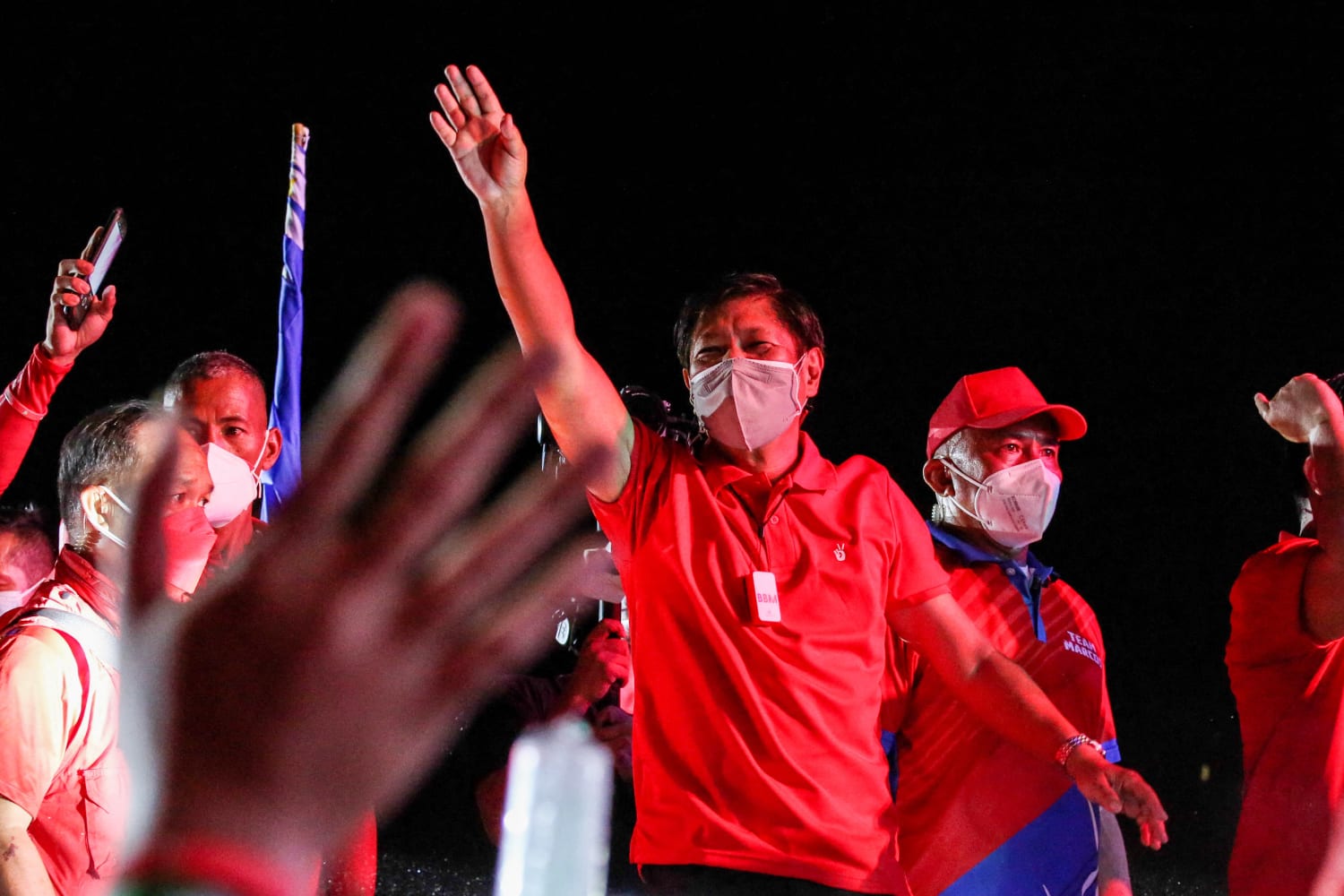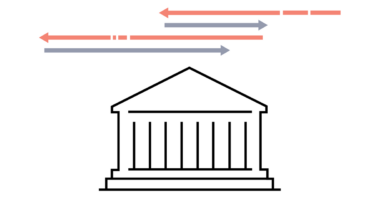MANILA, Philippines — Edrian Santollano is used to the heckling.
On a sweltering afternoon last week in the Philippine capital, he and more than 30 other volunteers had fanned out into the slum area of Baseco to knock on doors for Vice President Leni Robredo, a candidate in Monday’s presidential election.
As the volunteers — clad in pink, the color associated with Robredo’s campaign — made their way through the streets, children mockingly chanted “BBM, BBM, BBM,” a reference to Ferdinand “Bongbong” Marcos Jr., the former senator and namesake of the late Philippine dictator, who leads Robredo and eight other presidential candidates in the polls. The “pink warriors” shrugged off the taunts and moved on.
“We have converted a lot of people already, and we will not continue doing the house-to-house campaign if we don’t believe there is hope for people to change,” said Santollano, 24, a freelance graphic designer. “We know people start thinking after we speak with them.”
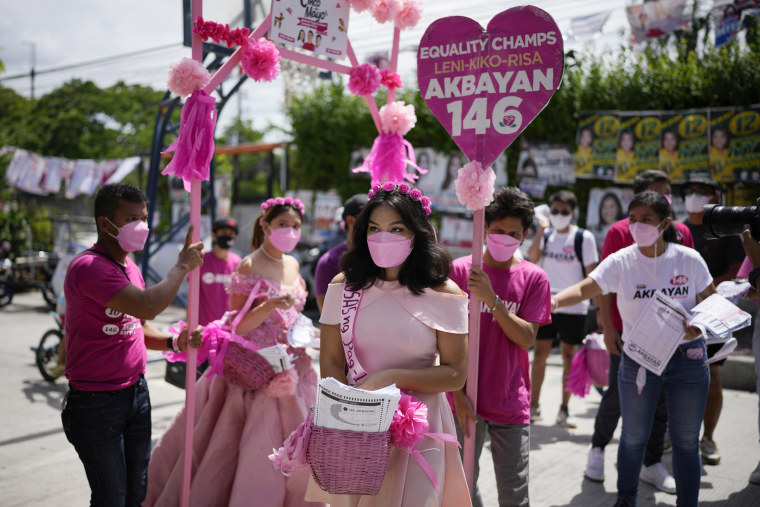
The Philippines, a U.S. ally and fragile democracy in Southeast Asia, is facing what political observers say is its most consequential presidential election in decades. Marcos’ candidacy has turned it into a referendum on the legacy of his father, Ferdinand Marcos Sr., who fled to the United States with his family and billions of dollars in public funds in 1986 after he was deposed in a popular revolution. The younger Marcos’ biggest challenge has come from Robredo, whose grassroots, volunteer-based campaign, experts say, is transforming Philippine politics.
Download the NBC News app for breaking news and politics
The Marcos dictatorship, which included nine years of martial law, was marked by corruption and widespread human rights abuses. The family was allowed to return to the Philippines in 1992, three years after the elder Marcos had died, and quickly re-entered politics. The younger Marcos, 64, and his mother, the former first lady Imelda Marcos, face arrest in the U.S. because of a $353 million contempt judgment in a class-action over the late dictator’s abuses, although Marcos has said that would not affect his policy toward Washington.
A Marcos victory in the presidential race would be the capstone on his family’s 30-year effort to regain its legitimacy, and it appears to be within reach. A Pulse Asia survey last month found that 56 percent of respondents supported Marcos, with Robredo running a distant second at 23 percent.
Poll numbers haven’t dampened enthusiasm at Robredo’s campaign rallies, where huge crowds wait for hours in the sun or rain to hear her speak. They bring food and drinks not just for themselves but for other “kakampinks,” a nickname for Robredo’s supporters, which comes from the Tagalog word for “ally.”
Robredo, 57, is an economist and former lawyer who entered politics after her politician husband, Jesse Robredo, died in a plane crash in 2012. But Robredo, who is running as an independent, is still perceived as an outsider, because she doesn’t come from one of the political dynasties that have dominated the Philippines for decades.
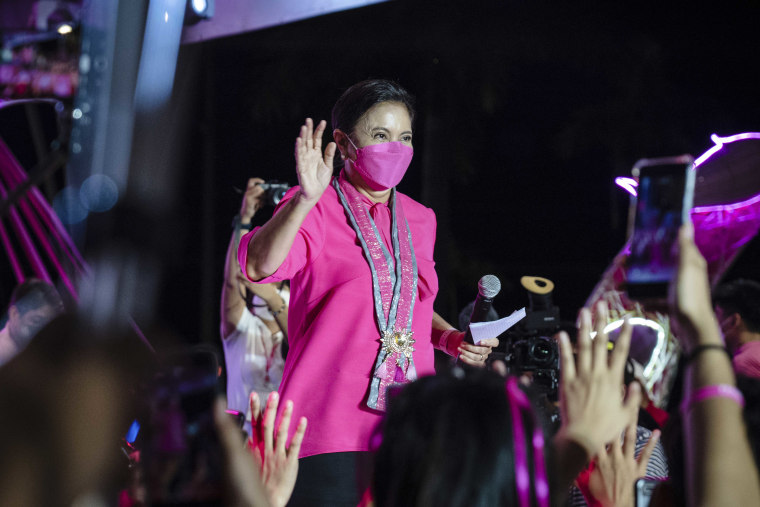
Aries Arugay, a visiting fellow at the ISEAS-Yusof Ishak Institute in Singapore, described Robredo’s campaign as “phenomenal.”
“People are printing their own shirts, printing their own paraphernalia, hosting their own events,” said Arugay, who is based in Manila. “You might go to a mall, a typical mall here, and then you’ll be surprised that there are maybe 100 people in pink just walking around the mall.”
Looming over the election is President Rodrigo Duterte, who came to power on a populist wave in 2016 and has been criticized internationally over his strongman style and deadly anti-drug campaign. Analysts say he has been a strong supporter of the Marcos family while sidelining and belittling Robredo as his vice president. His daughter Sara is running for vice president in an alliance with Marcos, although the positions are elected separately.
Jean Encinas Franco, an associate professor of political science at the University of the Philippines, said Duterte had paved the way for another Marcos presidency, noting that one of his first acts as president was to have Ferdinand Marcos Sr. buried in the national Heroes’ Cemetery.
“It’s the final erasure to what we know about the history of martial law and what really happened,” she said.
“I have seen the killings, the violations of human rights, the death of justice and the immorality demonstrated by the leader of the country, and I want all of these to change. This is not what Filipinos are or the Philippines is about.”
Gerald Molo, A Leni Robredo Supporter
Gerald Molo, 26, a graduate student and part-time professor, said Robredo volunteers shoulder their own expenses during campaign activities and are not expecting anything in return except for a change in how the government is run.
“I have seen the killings, the violations of human rights, the death of justice and the immorality demonstrated by the leader of the country, and I want all of these to change,” he said, referring to Duterte’s years in power. “This is not what Filipinos are or what the Philippines is about.”
But in a country where more than half of the voters are too young to remember martial law under Marcos Sr., there is also nostalgia for what some see as a “golden age” of authoritarian rule. Others, like Fernando Gapuz, say the younger Marcos is not to blame for what happened while his father was in power.
“I am not really angry at Marcos,” said Gapuz, 37, who was a year old when his father, a prominent human rights lawyer, was shot dead.
Gapuz said abuses under martial law were the fault of the military: “They are using Marcos as a scapegoat.”
He was also skeptical about Robredo supporters, calling the house-to-house campaigning “patronizing.”
“They just have an effective marketing campaign,” said Gapuz, who said he had voted for Robredo for vice president in 2016 but had been disappointed by her performance.
This is in a sense a rematch for Marcos and Robredo, who defeated him for vice president in 2016. It was the only race that a second-generation Marcos had lost, and Marcos spent years contesting the result. The electoral dispute, which was unanimously dismissed by the country’s Supreme Court last year, was also the subject of a social media misinformation campaign that has greatly influenced Robredo’s public image.
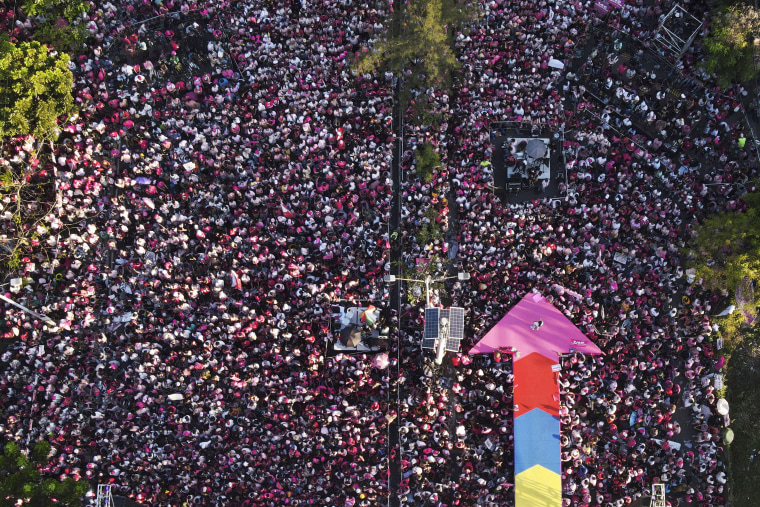
Angelo Montejo, a 32-year-old accountant from Santa Rosa, said he had once supported Marcos over Robredo, in part because of social media posts that questioned Robredo’s legitimacy or derided her as “lugaw,” or rice porridge, suggesting she had little substance.
“I believed that Ferdinand Marcos Sr., his father, was a good president,” Montejo said. “I was one of those people who called her fake VP, lugaw or even bobo [fool].”
He said his opinion changed when his brother caught the coronavirus, and no hospital could take him. Desperate, he reached out for help from a program set up by Robredo’s office, and received assistance immediately.
“While other politicians were so silent and seemed to be hiding from the comfort of their homes, VP Leni was busy fulfilling her responsibilities to every Filipino,” said Montejo, 32, who said he had spent about 10,000 pesos ($190) of his own money to buy food and pay for transportation for other Robredo supporters.
For Teresita Zaragoza, 71, the prospect of another Marcos presidency prompted her to fly back to Manila from San Francisco to campaign for Robredo.
“This is a historic moment, and I don’t want to miss this because this is do or die for us,” she said. “I want the Philippines to prosper, and what will happen if you have a president like Bongbong, who can’t even go to the United States? What will happen to foreign policy?”
Santollano said he was ready to continue the fight if Marcos wins.
“I will immediately join protests because I cannot accept it,” he said. “That is like eating food that you already vomited. I will not allow it.”
Despite the enthusiasm of her volunteers, analysts say Robredo was late to declare her candidacy and her campaign underestimated the impact of social media misinformation.
“Whatever happens in this election, I still have the hope that it has engendered a young generation of Filipinos who are willing to spend time, resources and effort just to have a government that Filipinos deserve,” Franco said. “No one can change that, not even the victory of Marcos Jr.”
Girlie Linao reported from Manila, Philippines. Jennifer Jett and Chloe Ching reported from Hong Kong.
Source: | This article originally belongs to Nbcnews.com


